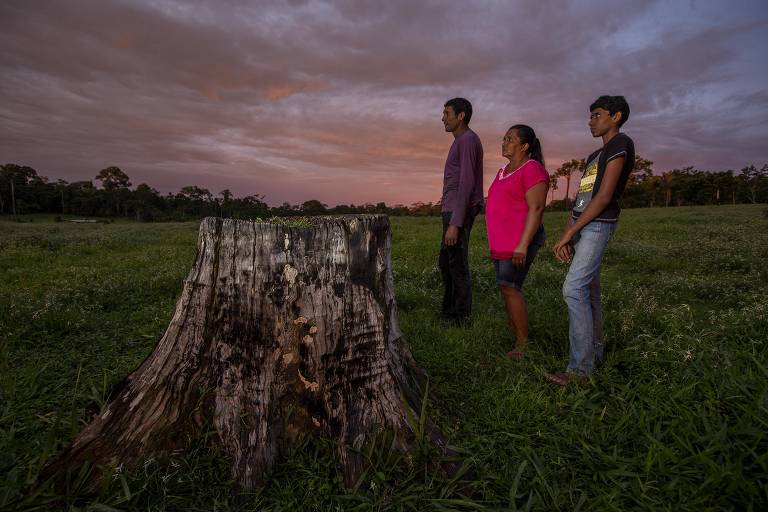Livestock, the biggest threat to the forest that environment activist Chico Mendes fought to preserve, has become the industry of choice in Xapuri, Mendes' hometown. So much that some of his contemporaries already consider themselves "former rubber tappers."
Government incentives for rubber and brazil nut, the main products of extractive activities in the area, are not attractive enough for the younger generations.
Some consider that rubber tapping has its days numbered after Jair Bolsonaro was elected. During his campaign, Bolsonaro spared no criticism to what he called the excessive number of environmentally protected areas in Brazil, and Acre's governor-elect Gladson Cameli promised to encourage agribusiness and "give a hoe" to the state's environment inspectors -- later he told Folha that his remark wasn't meant to be taken literally.
Almost half of Acre's territory is made up of conservation units. A big part of those are extractivist reserves that belong to the state but allow locals to live off the land - just as Chico Mendes wanted it to be.
At the reserve named after him, each resident can clear forest up to 74 acres, with one half destined to agriculture and another for livestock, which would fit about 30 cattle, but some families have more than that.
At the Chico Mendes reservation, that encompasses Xapuri and another six municipalities, there are 30,000 heads of cattle, with herds of up to 700 animals, according to 2016 state data.
Translated by NATASHA MADOV
Read the article in the original language
